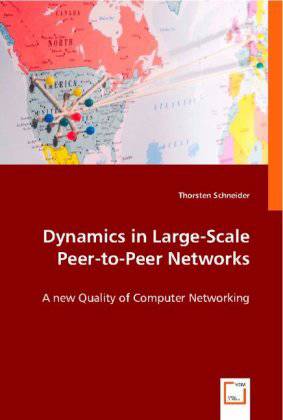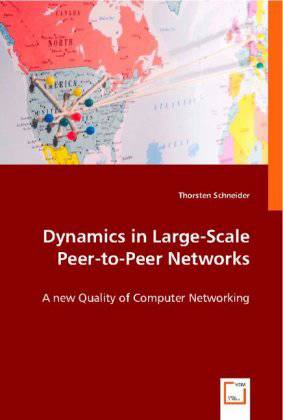
- Afhalen na 1 uur in een winkel met voorraad
- Gratis thuislevering in België vanaf € 30
- Ruim aanbod met 7 miljoen producten
- Afhalen na 1 uur in een winkel met voorraad
- Gratis thuislevering in België vanaf € 30
- Ruim aanbod met 7 miljoen producten
Zoeken
Dynamics in Large-Scale Peer-to-Peer Networks
A new Quality of Computer Networking
Thorsten Schneider
Paperback | Engels
€ 48,45
+ 96 punten
Omschrijving
Performing automated tests can help to identify errors with much less effort than testing complex programs manually. Setting up such tests on Peer-to-Peer networks is not an easy task because many machines have to be synchronized while peers should follow a join and leave pattern similar to the real-world behavior. This work develops real-world user behavior models and a simulation framework which is subsequently used to evaluate Minerva, a Peer-to-Peer Web search prototype system developed at MPI. The simulation framework is deployed on the MPI cluster to set up large-scale networks in a fully automated way. Measurements are conducted on the freshness and availability of data in Minerva and compared to theoretical forecasts that are calculated with help of the user behavior models. This book is adressed to people interested in Peer-to-Peer networks in general and, above that, in large, automatically set up, monitored and controlled environments in particular.
Specificaties
Betrokkenen
- Auteur(s):
- Uitgeverij:
Inhoud
- Aantal bladzijden:
- 80
- Taal:
- Engels
Eigenschappen
- Productcode (EAN):
- 9783836490610
- Uitvoering:
- Paperback
- Afmetingen:
- 150 mm x 220 mm
- Gewicht:
- 129 g

Alleen bij Standaard Boekhandel
+ 96 punten op je klantenkaart van Standaard Boekhandel
Beoordelingen
We publiceren alleen reviews die voldoen aan de voorwaarden voor reviews. Bekijk onze voorwaarden voor reviews.







